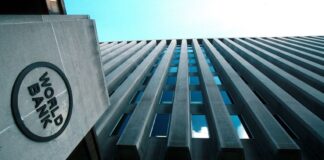KUALA LUMPUR, June 30 — The Regional Comprehensive Economic Partnership (RCEP) can be an important economic recovery tool against the COVID-19 pandemic, according to an expert.
Former ambassador to the World Trade Organisation, Datuk M. Supperamaniam, said the RCEP, if effectively implemented, could strengthen Malaysia’s economic position in the region and also globally which could be a crucial element of recovery from the pandemic.
“Once in effect, the RCEP will eliminate tariffs on as much as 90 per cent of goods traded between its signatories over the next 20 years.
“It provides opportunities for Malaysian businesses by offering market access to nearly a third of the world’s population,” he said during the virtual Malaysia-China Chamber of Commerce RCEP roundtable series seminar today.
Supperamaniam explained that the RCEP would expand intra-regional trade, integrating supply chain and promoting greater transparency for sharing trade facilitation.
“This is somehow important for the business community as they want to be competitive,” he said.
He said the RCEP was also set to increase commercial opportunities and increase strategic partnerships among the member countries to explore business.
“Overall, I think Malaysia will gain from this RCEP but some (industries) will face challenges; hence, there is a need to work together with the government to ensure that they are assisted,” said Supperamaniam.
According to him, the RCEP ratification will show that Malaysia wants to do business with the rest of the world, despite the COVID-19 situation.
The RCEP is the world’s biggest free trade agreement by grouping together 10 ASEAN members – Brunei, Cambodia, Indonesia, Laos, Malaysia, Myanmar, the Philippines, Singapore, Thailand and Vietnam, including Japan, China, South Korea, Australia and New Zealand.
So far, Singapore, Thailand, China and Japan have ratified the RCEP agreement.
Malaysia is expected to ratify the RCEP by the end of the year or latest by the first quarter of 2022.
















